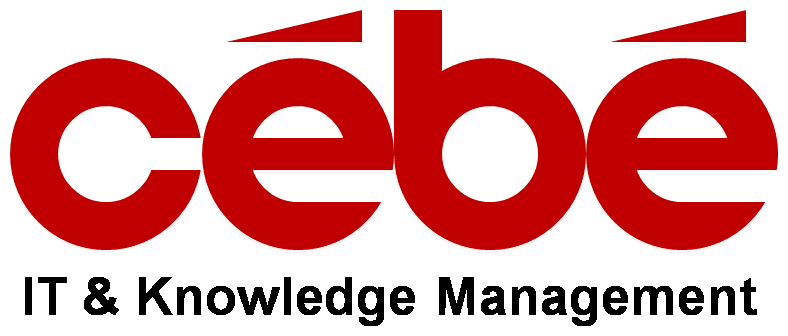
Consulting Services
- IT Strategy
- EA / SOA / BPM
- IT Innovation Briefings
- IT Due Diligence
- Vendor Selection
- Executive IT Seminars
- Cloud Computing
- Grid Computing
- Security Maturity
- Knowledge Strategy
- Technical Communities
- Knowledge Capture
- Enterprise Social Networking
Contact Us:
|
 |
|
|
Forward this newsletter to colleagues and friends: use the "forward email" link below at left, rather than "Forward" in your email software, to preserve your privacy, give the recipient more options (their own unsubscribe link, etc.) and to give us better click-through data from ConstantContact. Thanks!
|
|
|
 |
"Decoding Business/IT Unity" Podcast
|
We've heard about "business/IT alignment" for a decade now (blame Gartner if you wish, but they had a point). Now people are talking about "business/IT integration" -- the difference sounds subtle but could have far-ranging consequences on the role and even existence of the CIO. In this 40-minute podcast just released by the Business Ecology Initiative (BEI), Aleks Buterman of SenseAgility talks about "business/IT unity." He describes "failure patterns associated with enterprise technology investments," using real cases, and proposes the key business principles required to steer through the business/ technology lifecycles.
|
 |
The Next Operating System War?
|
The shots across the bows are being fired. Will Google's Chrome OS threaten Microsoft Windows? June started with Google banning the use of Windows on new employee PCs, unless the CIO approves a waiver, ostensibly for security reasons; continued with Microsoft once again defending the security of Windows; and ended with the rumor that Dell will ship Chrome-based PCs in order to corner (or generate?) a new market and regain the lead in PC sales.
|
 |
Multi-Core Programming in Java Made Simple
|
Ateji PX is a just-launched Java language extension designed to make parallel and multi-core programming simple. The insertion of threading code is done by a compiler which produces intermediate standard Java code. According to Ateji (a small Paris-based company focused on parallel programming solutions), the resulting programs are as efficient as, yet much easier to read and maintain than, manually parallelized code. The product's Web page offers a quite readable white paper with examples and performance graphs. Ateji PX comes with a set of tools integrated as an Eclipse plug-in.
|
 |
Event Processing Symposium 2010
|
Complex Event Processing (CEP) is getting a lot of attention, in line with pervasive presence of sensors in manufacturing environments, cars, buildings, etc. The OMG's Event Processing Community of Practice (CoP) held an virtual event on June 7, with speakers from Gartner, IBM, Sabre Airline Solutions, TIBCO Software, and Cloud Event Processing Inc. Replays are available
here.
|
 |
Simpler, Faster, Cheaper
|
|
No, it's not a new Olympic motto, but it is how you can assemble a multi-company collaboration environment to respond to an urgent need. Recently, we put together a fairly comprehensive Web site (including newly registered domains pointing to it), a discussion forum, a team calendar, and a conference call capability, all using free tools "in the cloud." The hardest part was not the technology, or the lack of clear requirements at the beginning ("agile" to the rescue!) but... assembling the contact information for the team members and making sense of their multiple network identities. We went from 0 to 60 in about four days, part-time, and think this can be tightened to 48 hours once we document the best practices and lessons learned from this effort. Note that this method is not suited (at this point) for highly confidential materials. Speed was a critical requirement, and "good enough" security was deemed sufficient.
|
 |
Seen Recently
|
|
"Customers don't experience averages, and that's what we were measuring."
-- Patti VanLammeren, Customer Experience Officer at Allstate,
during Forrester's Customer Experience Forum 2010 (CXP10)
"I have seen IT shops do the equivalent of a filibuster to avoid governance."
-- Mike Kavis, CTO of M-Dot Network,
via Twitter (
@madgreek65)
|
|
| |
|